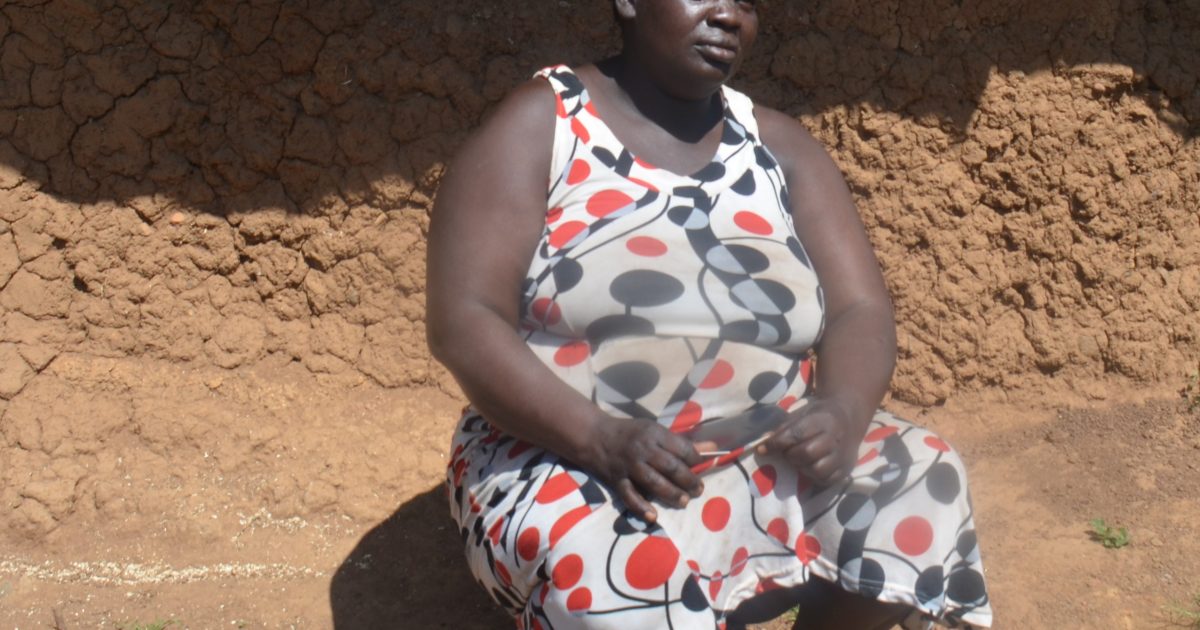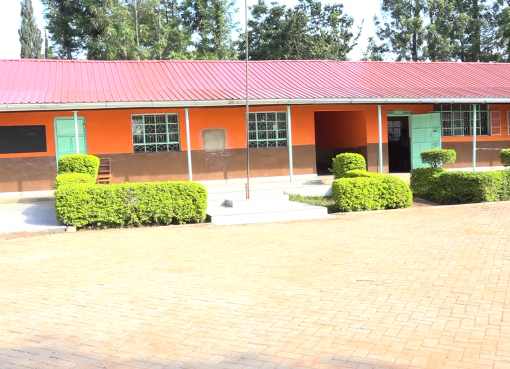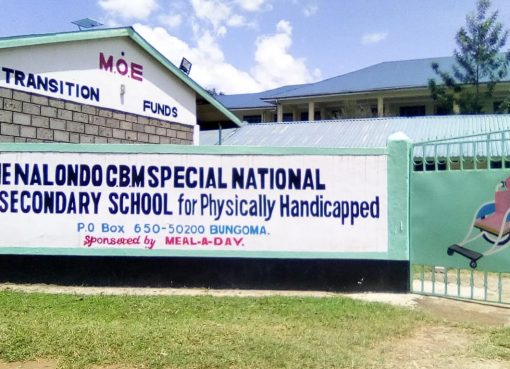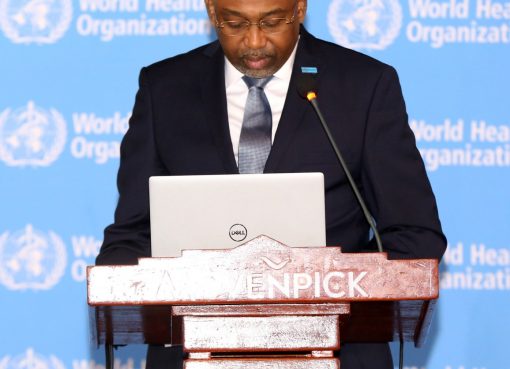Cervical cancer is one of the leading cancers in women. According to the Kenya National Cancer Screening Guidelines of 2018, Cervical Cancer was the second most common cancer in women and the most common cause of cancer deaths.
However, in Kuria West Sub County of Migori County, four women have battled and survived this deadly disease, giving hope to many that have cervical cancer that indeed one can get cured.
Elizabeth Otaigo Naftali, aged 38, Sofia Wambura Rioba, aged 39, Boke John Mwita 51, years old and 39-year-old Rose Getangita Nchagoa are all survivors of cervical cancer.
Elizabeth, a mother of five is in her sixth year after surviving cervical cancer. Her uterus was removed in 2014. Before the operation Elizabeth says she was feeling too tired to do anything, she felt pain in her knees, legs and waist.
She encourages the women of Kuria to go for cancer screening explaining that screening will help women to know their status and seek treatment earlier. This she says will save them the trouble of removing the uterus which is a painful experience.
“My mother-in-law passed on in 2015 after refusing to go for screening in 2011,” said Elizabeth.
Sofia Wambura, a resident of Masaba village and a mother of four is another survivor of cervical cancer. Sofia says that she started experiencing a lot of pain in her lower abdomen in 2012.
“I was encouraged in 2013 to go for screening by Mr. Thomas Chacha, the founder of Smile Woman,” said Sofia.
Sofia acknowledges that she was very lucky her uterus was not removed. Hers was at stage one cancer that only required freezing of the cancerous cells. “I routinely go for checkups every six months,” Sofia stated with a broad smile on her face.
She is very thankful to the founder of Smile Woman charitable organization for his persuasiveness that convinced her to go for early cancer screening.
For Mrs. Boke Mwita, a resident of Bohorera village, she started experiencing odd body health by usually groaning under heavy stomach pain and prolonged blood flow after her periods which disturbed her for four years.
After doing the screening for cancer with the help of Mr. Thomas Chacha, Boke was diagnosed with stage two cervical cancer. She affirmed that her blood pressure was also shooting so high due to cancer stress.
“I had to be admitted for one week for medication to lower my blood pressure before a surgery could be carried out,’’ said Boke. Her surgery was done in 2013 to remove her uterus.
Boke was cautioned not to practice tobacco farming because of the harmful effects of tobacco that could delay her recovery. She now engages in other farming activities like cultivating bananas, vegetable and maize farming.
But for 39-year-old Rose Getangita another cervical cancer survivor, all started going awry for her health following pangs of severe pain during her periods with never ending headaches from 2003. In 2008 she was misdiagnosed with fibroids and went for operation at Tabaka hospital in Kisii County.
Rose’s problem still persisted even after the surgery. They had to sell land and cattle in order to facilitate her expensive treatments. For the whole of 2012 she experienced excessive bleeding during her periods and excessive sweating at night.
With the help of Mr. Thomas Chacha she underwent a cancer screening test that actually confirmed that she was suffering from cervical cancer. Her cancer surgery was finally done in 2012 at the same hospital where her uterus was removed.
According to a Clinical Officer at Masaba Health Care, Mr. Edwin Omai, cancer survivors have been given hope by the five Kuria women, saying, indeed if cancer is detected earlier it can be cured.
The Clinical Officer noted that the community’s norm for a long time was that once you have cancer you are a dead person.
In December 2020 the hospital carried out an out-reach event where 46 women came for cancer screening. Omai confirms that the 46 tested negative for the cancerous cells. The event was organised by the CEO of Smile Women Mr. Chacha.
Mr. Chacha has single handedly helped these cancer survivors right from their screening expenses and treatments to registration with the National Hospital Insurance Fund (NHIF) cards. These cards are paid from his own pocket to ensure that these women afford their checkup expenses.
He said that sometimes residents of Masaba village come to his home to look for NHIF cards. He however acknowledges that he can’t help everyone.
But what prompted Chacha to go this length. The CEO’s mother died in 2008 of cervical cancer. Chacha explains that his mother was misdiagnosed in 1999.
It was only after taking her for a series of tests at Kenya Medical Research Institute (KEMRI) that it was discovered she had stage 2 B cervical cancer. At the time, she was over 60 years and therefore no surgery could be performed.
The CEO emphasised that his mother’s dying wish was that he should not let any other woman suffer the way she had suffered. That’s why he decided to help women with cervical cancer in Kuria.
In 2016 Chacha walked 1,000 kilometers from Kuria to Mombasa to create cervical cancer awareness and at the same time raise funds to fund his cause.
Many well-wishers promised to help with the cause but they never honored their pledges. It is through his vegetable farming that he has managed to generate money to help the Kuria Women.
Chacha gave an example of Ms. Susan Magembe who has been sick with cervical cancer for the past 10 years. He has tried to take her six times for the operation. However, each time they went for surgery her blood pressure would be too high.
The Smile Woman founder says that Susan needs to be admitted for at least two weeks to lower her blood pressure before a surgery can be done. ‘‘I want to help Susan but financial constraints have limited me in what I can and cannot do,’’says Chacha.
He fears that Susan may end up having stage IV cancer, which spreads to other parts of the body making it impossible to treat.
His prayer and hope is that more well-wishers should come forward to help him in this cause. Chacha says to do a cancer screening test alone can cost Sh100,000, money that Kuria women cannot afford due to poverty.
The CEO highlighted that they wanted to do at least 28,000 Cancer screening for women in Migori County by 2021. He is also hoping to do 6,000 cancer screening for women in Kuria by the end of September 2021.
He encourages parents in the county to allow their nine-year-old girls to get vaccinated with Human Papillomavirus (HPV) so that they can be immunized to prevent cervical cancer in future.
By Geoffrey Makokha and George Agimba





